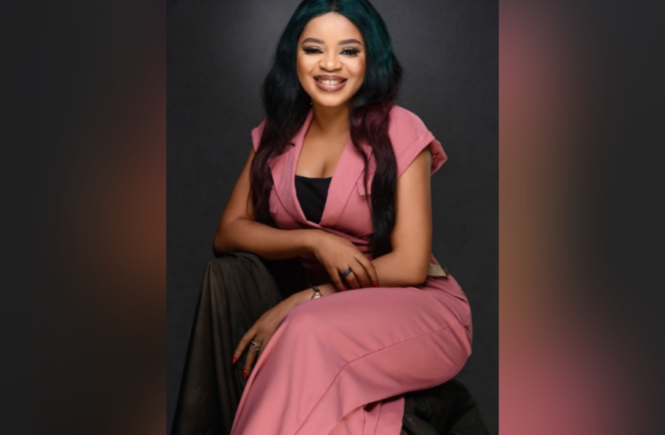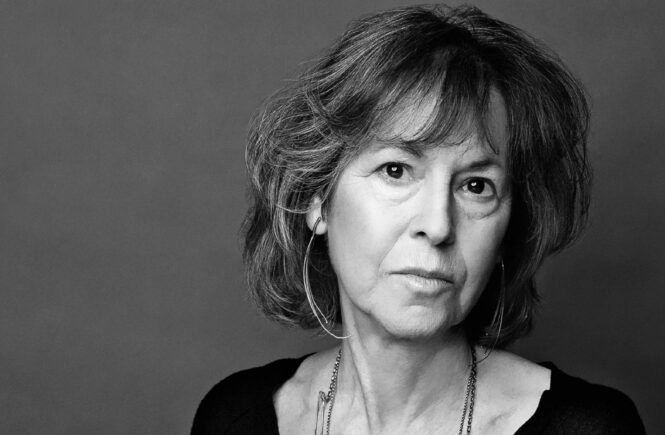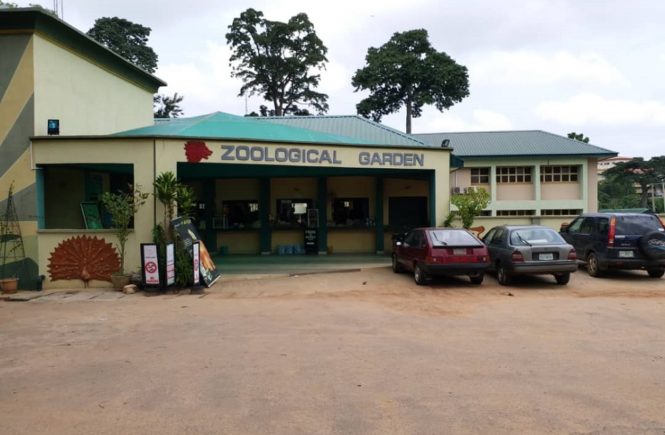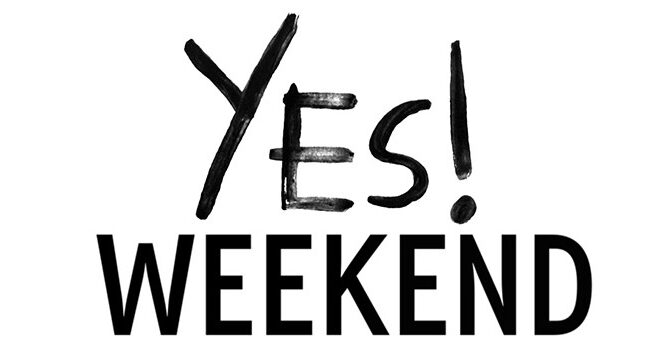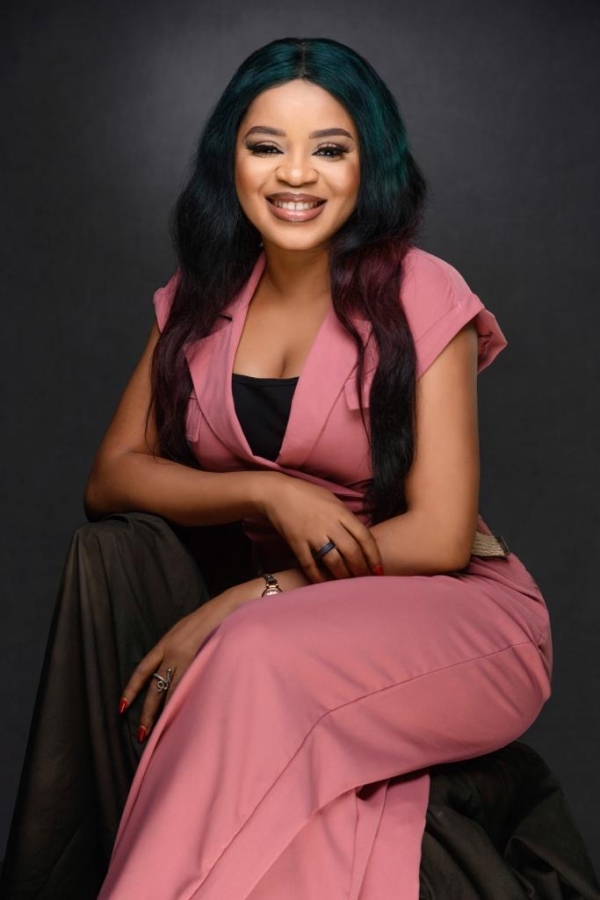
Today being the day set aside as the International Day of the Girl-Child is celebrated and commemorated globally. With the theme “my voice, our equal future”, vivacity PR organizes second edition of her VivaciousBallNG event themed – “The Future of the Girl Child”.
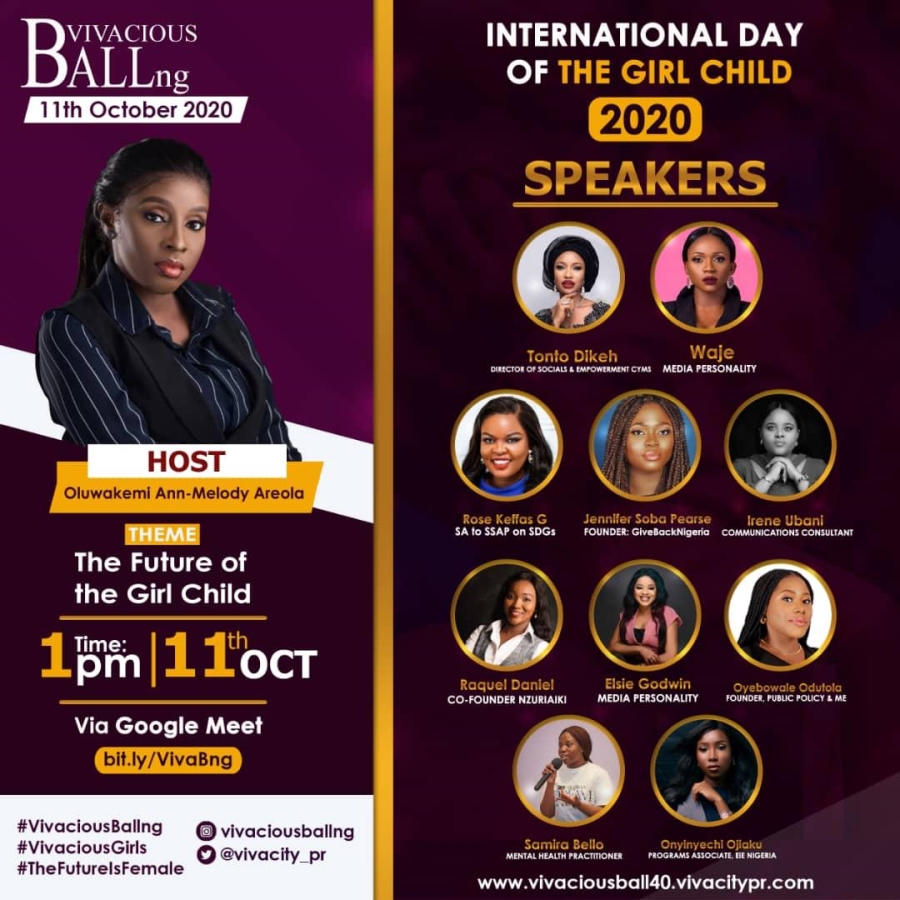
The discussion was aimed at creating awareness on the future of female children in the country, and how to invest in these girls to help build a sustainable future for themselves. Hosted by Oluwakemi Ann-melody Areola (SSA to Minister of Youths and Sports Development) and other panelists, which includes Waje, Tonto Dikeh, Rose Kellas G, Jennifer Soba Pearse, Irene Ubani, Raquel Daniel, Elsie Godwin, Oyebowale Odutola, Samira Bello, and Onyinyechi Ojiaku.
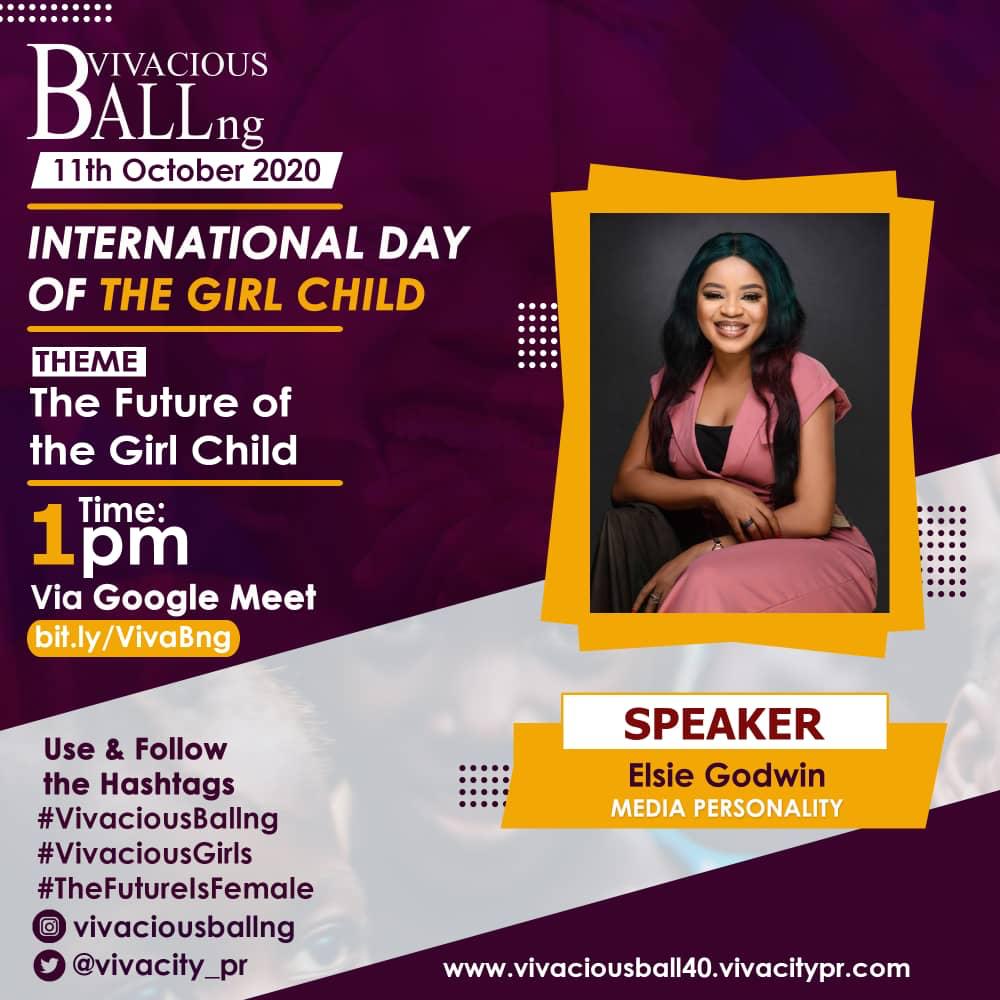
Elsie Godwin appeals for better collaboration & Partnerships with the Media in order to own our Narratives. Read full speech below:
***
9 years ago, The United Nations General Assembly voted to designate 11th of October as the ‘International Day of the Girl Child’ to promote girls’ human rights, highlight gender inequalities, and address the various forms of discrimination and abuse suffered by girls globally.
For the girl child in Nigeria and indeed Africa, the abuse, discrimination, and issues facing the girl child are enormous. According to UIS data, Across Sub-Saharan Africa, 9 million girls between the ages of about 6 and 11 will never go to school at all, compared to 6 million boys. 23% of girls are out of primary school compared to 19% of boys. By the time they become adolescents, the exclusion rate for girls is 36% compared to 32% for boys. Access to quality education, unequal opportunities, access to health care and personal hygiene, sexual and reproductive health rights, Child Marriage, the list goes on. The issues unfortunately are not isolated as they, in one way, shape or form, are interwoven, as one of all leads to the other.
Shoutout to Host of this event – Oluwakemi Ann-Melody Areola for putting this together and also recognizing and shining a light on the effort of 15-year-old Samira Bello who designed an app for people in need of mental health well-being. Thank you for amplifying this leadership action. I’m definitely inspired.
In my capacity as a media personality, blogger, content creator and curator, producer, and presenter currently working at Plus TV Africa, I create conversations regularly to highlight various social issues and of course proffer solutions by having bright minds, advocates, and activists as guests. I am passionate about the power of conversations as I proudly call myself a Conversationalist, and this has naturally drawn me to the power of media. For this reason, I am using this opportunity to appeal to each and every one of us to work closely with the media, especially our locally owned media. Because I am in that space, I understand the bureaucracy journalists and media personalities have to go through to do their job. It’s easy to bash our local media for not doing, without understanding the challenges. I also do understand that like every sector, there are people who, due to circumstances have missed the mark as content creators or journalists but there are many of us who are interested in producing meaningful content (Shout-out to Irene Ubani, who used to be my colleague at Plus TV Africa). I know how we worked tirelessly to push the right narrative, be it in business, lifestyle, entertainment, or even politics. Even now as a communications consultant, she’s relentlessly impacting people with her knowledge. We are women in media and we want to be able to use our platforms to amplify the voices of our gender. We need to tell our own stories and own our narrative. Partnerships and collaboration are all we ask for and being available to speak up. Think about it for a second, how you react when a foreign platform reaches out to you for a feature or conversation and how you disregard local media and content creators. We need each other to do better.
As a woman, it’s an amazing time to be alive. There are women paving the way and doing great jobs. Women like Mrs Ngozi Okonjo-Iweala, giving me so much joy as I follow her growth and global exploit. Or Aisha Yesufu, fighting tirelessly for the youths of Nigeria as we raise our voice to stand against police brutality. We have seen real leaders in women and we are dedicated to doing all it takes within my capacity to help girls connect with the stories of these great women in our society.
Like the UN has rightly highlighted, we must work together to eliminate all forms of discrimination against girls. Eliminate negative cultural attitudes and practices against girls. Promote and protect the rights of girls and increase awareness of their needs and potential. Eliminate discrimination against girls in education, skills development and training. Eliminate discrimination against girls in health and nutrition. Eliminate the economic exploitation of child labour and protect young girls at work. Eradicate violence against girls. Promote girls’ awareness of and participation in social, economic, and political life, and strengthen the role of the family in improving the status of girls.
To achieve all these and more, we have to be intentional. I grew up not understanding inequality or gender roles because my mother was a strong resilient woman. She was unconventional. Looking back, I can proudly say my mother was a feminist without identifying with the tag. I never heard her say – ‘this should be done by a man or that is the role of a woman’. She was a businesswoman, an entrepreneur, and her boldness intimidated many. It took me losing her protection to begin to understand and see life from different perspectives. So in achieving our common goal, we must be intentional, empathetic, and bold.
Together, we must protect the future by protecting the girl-child.
Thank you!

